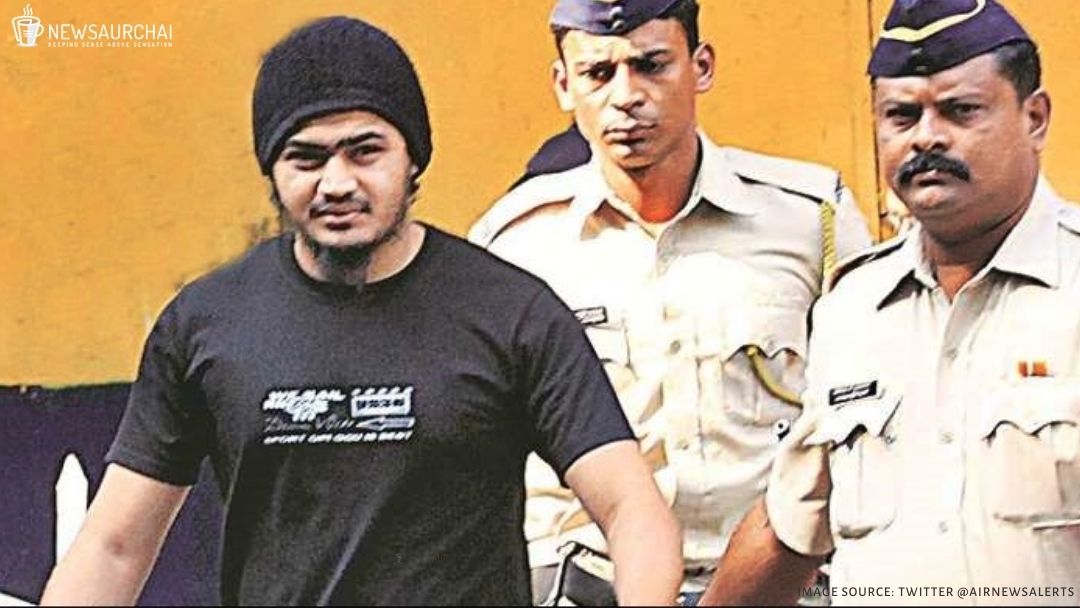
Areeb Majeed case is not a recent one but dates back to 2014. Along with his three friends, Areeb moved to Iraq and joined the terrorist organization, Islamic State for Iraq and the Levant (ISIL). He was, however, arrested in the Mumbai International Airport while returning from Turkey on November 28, 2014. Authorities have right now held him up at Arthur Road prison. The National Investigation Agency (NIA) claims that he returned to the city with the purpose of a terrorist invasion. Even with such serious accusations, the Bombay High Court granted him bail on March 17, 2021.
Areeb Majeed and The Past Occurrences
Areeb Majeed was a 21-year-old youngster from Kalyan accused of having links with ISIL. He left the country in 2014 with the intent of joining the terrorist organization. In May 2014, he flew to Baghdad with his three friends, Aman Tandel, Fahad Shaikh and Shaheen Tanki, in Etihad Airways boarded for Abu Dhabi.
They supposedly boarded with pilgrims but later escaped to indulge in jihadi practices in Iraq and Syria. Their worried families filed missing reports, which instigated an investigation by the Maharastra Police and Anti-Terrorism Squad. He was, however, arrested in the Mumbai International Airport while returning from Turkey on November 28, 2014. The NIA claims that he returned to the city, intending to blow up the Mumbai police headquarters.
Areeb Majeed and NIA
Majeed filed repetitive applications for a special court hearing, which were rejected. In a 2016 hearing, Majeed claimed that the NIA officials, with high-ranking diplomatic and central government administrators, aided his return to Mumbai. He declared that only 51 witnesses were analyzed in five years and, a day per week was apportioned to his case, making the trial a slow one.
No prima facie (sufficient evidence to move ahead with the trial) was against Majeed. On March 20, 2020, the fourth bail plea was to take place in Mumbai. However, the delay by NIA forced the trial postponement. The lockdown catalyzed the hearing’s delay. On a hearing that took place on February 4, 2021, Majeed said that the NIA had conspired against him. With no material proof supporting his associations and motives, the NIA did not have a backup to support the allegations.
How Law Treated Majeed
Justices S. S. Shinde and Manish Pitale’s division bench argued that under Acts like the Unlawful Activities (Prevention) Act, bail is supposedly granted with rigorous measures. The conditions of the bail obliged Majeed to a bond of ₹1 lakh. He is subject to reporting to the nearest police station twice a day and with the NIA officer concerned once a week. Majeed is bound to stay with his parents in Kalyan itself and surrender his passport to the authorities.
He is deprived of the freedom to make any statements concerning the proceedings pending before the Special Court.
Why Was Bail Granted?
Article 15 of the Indian Constitution states, “No person shall be deprived of his life or personal liberty except according to a procedure established by law.”
With no proper evidence, bail had to be conferred to Areeb as it violated Article 15. He had served six years in jail, which was more than the prescribed time of his offence. Withstanding that no proof supported the offence intended and merely some witnesses turned hostile, a ground to revisit findings on merits of the previous orders was untouched.
Areeb Majeed, his education and humble family background were taken into consideration while arriving upon the decision.
The Court’s Statements
The Court evaluated the accused’s background and said, “Mr Majeed is an educated person, who was completing his graduation in Civil Engineering when he left for Iraq at the age of 21. He categorically stated before us that as a 21-year-old, he was carried away and that he had committed a serious mistake, for which he had already spent over six years behind bars. In the past six years of his incarceration, he has argued his case on his own before the NIA Court. He represented his own case before this Court as well as the NIA Court, and we could find that he was presenting his case by maintaining decorum and in a proper manner.”
While considering the familial and educational matters, the Court said, “His father is a doctor of Unani medicine, and his sisters are also doctors. His brother is an engineer. This shows that he comes from an educated family and that if stringent conditions are imposed upon him, with an undertaking to cooperate with the trial proceedings before the NIA Court, his release on bail may not be harmful to the society at large, and it would not adversely affect the trial proceedings.”





